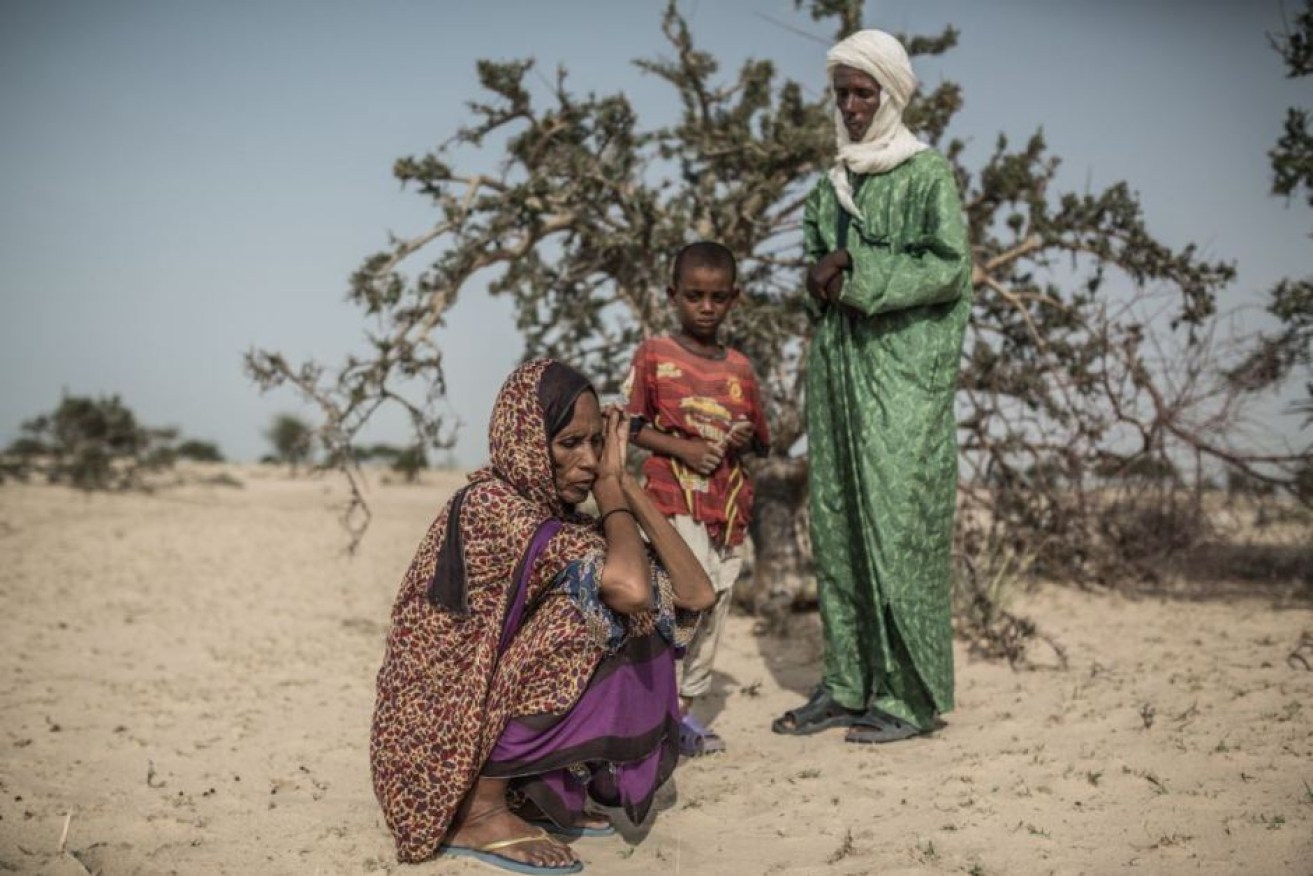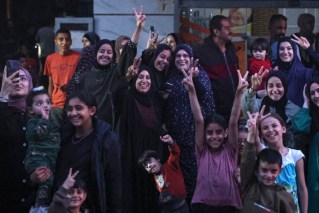World Food Day: 350,000 people in Chad face starvation

Around 335,000 people in the Lake Region are malnourished, most of them children. Photo: Oxfam
What did you eat for breakfast today? How much did you spend on lunch? On World Food Day – perhaps while you eat dinner – spare a thought for some of the hungriest people on Earth.
In Chad, 350,000 people are in danger of starvation due to failing food supplies, losing their animals, their lands and crops, and being unable to carry out activities like fishing.
The massive movements of people and difficulties in growing crops or distributing aid have left more than eight million people on the brink of starvation.
There are few places in the world more impoverished than Chad.
The central African nation ranks 186 out of 188 countries on the UN’s most recent Human Development Index, which compares wealth, health, and key indicators across the world.
Life expectancy in Chad is a dismal 52 years. Average per capita income last year was less than $US2000 ($A2500).
And many of Chad’s 15 million people are lucky to complete the average seven years of schooling.

Chad ranks 186 out of 188 countries on the UN’s most recent Human Development Index. Photo: Oxfam
And within Chad, the Lake Region is one of the poorest of all. The area is home to millions of people.
On Monday, on annual World Food Day, around 335,000 people in the Lake Region are malnourished, most of them children.
It is a place where only 10 doctors are currently working.
Many here have told aid workers at Oxfam they have no hope of their lives improving.
“We’re hungry,” Adoum Hassane said.
“We’re very hungry. We eat once a day. Sometimes not even that.”
It was hunger that killed Mr Hassane’s six-year-old son Mohamed.
“His stomach made noises. He had diarrhoea,” his father said.
‘We lived like kings’
But life at Lake Chad was not always like this.
One fisherman, Ibrahim, said even 10 years ago the people around Lake Chad “lived like kings” with a ready supply of fish, vegetables and goats.
That was before Boko Haram.
Eight years ago, Boko Haram militants crossed the border from Nigeria and launched their first attacks in Chad, in the Lake Region.
They plundered entire villages, murdered civilians and forced thousands to flee, in a jihadist war that still rages today.

Within Chad, the Lake Region is one of the poorest of all. Photo: Oxfam
“They came during Ramadan. There was hardly a moment for a drink of water when we heard the noise of weapons,” one woman, Hacua, said.
She grabbed her children and fled, walking for a month.
“We managed to get away safe and sound with our children, but we lost some relatives,” Ibrahim said.
Today Ibrahim goes hungry. He lives more than three hours away from the lake and his sole link with water is to carry it for people and animals to earn a few cents to buy food.
Those who survived the jihadists’ attacks face daily, grinding hunger.
The war by Boko Haram has ruined the lives of millions of people across the lake region that stretches across the borders of Chad, Cameroon, Niger, and Nigeria.
“People here were always able to earn a living but are now deprived of any possibility of doing so,” Elkana Mooh, Oxfam’s country director in Chad, said.
“Boko Haram’s attacks and the government’s military strategy have forced them to leave their homes and livelihoods, and offered no alternatives.
“The Lake Chad conflict is a silent one, and here in Chad you find the forgotten among the forgotten.”
Many Boko Haram victims struggle to understand the war that has destroyed their lives and caused such hunger and poverty.
“I never thought that one day I would find myself in this situation,” one woman, Fatima, said.
“They kill their fathers, their mothers and their children. We don’t know why.”
-ABC








